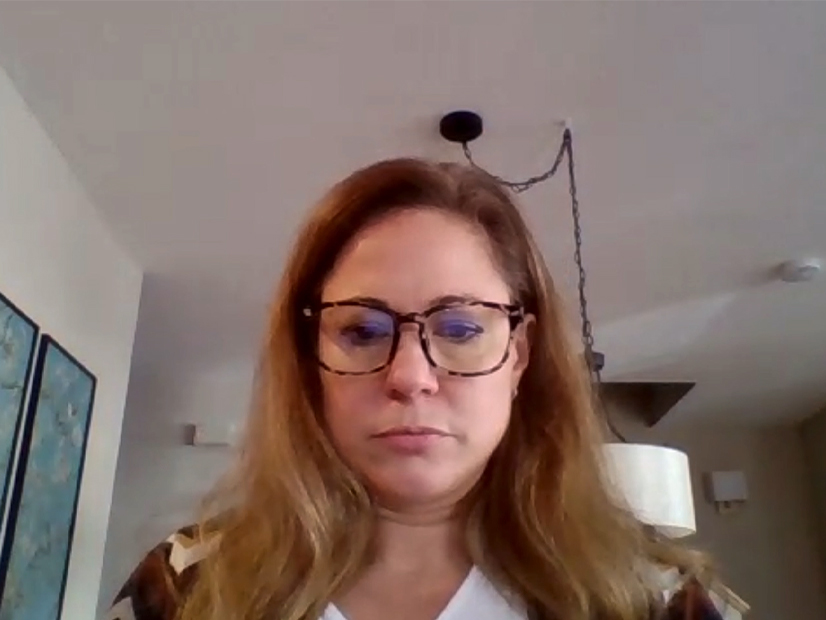NERC’s Standards Committee will move ahead with a new standards development project motivated by February’s winter storms, following a short delay that provoked a rebuke from the organization’s Board of Trustees.
The committee voted at its meeting on Wednesday to accept a standards authorization request (SAR) aimed at ensuring “improved operations, preparedness and coordination during extreme weather” by adopting the recommendations from the joint FERC-NERC inquiry into the storms, released on Tuesday. (See related story, FERC, NERC Release Final Texas Storm Report.) Along with approving the SAR, the committee also approved posting the SAR for a 30-day formal comment period and soliciting SAR drafting team members from industry.
The recommendations in Tuesday’s report include requiring generator owners and/or operators to identify and protect cold weather-critical components, build or retrofit generating units to operate to specific ambient temperatures and weather, and perform annual training on winterization plans.
NERC introduced the same SAR at the committee’s last meeting in October, but the committee declined to approve it. At that point the joint inquiry’s final report had not been released yet, and committee members were reluctant to move forward with a project based only on the preliminary report issued in September. (See NERC Standards Committee Delays Action on Cold Weather SAR.)
Attendees at NERC’s November board meeting expressed frustration with the committee’s inaction: CEO Jim Robb described FERC Chair Richard Glick reacting with “befuddlement and disbelief” and warned that “we can’t use the process … to delay dealing with issues.” (See “Frustration at Cold Weather Delay,” NERC Board of Trustees/MRC Briefs: Nov. 4, 2021.) Board Chair Ken DeFontes said that while the desire for a “deliberate and measured” approach to standards development is understandable, February’s experience showed the need for “dramatic adjustments in how the industry approaches winter preparation.”
Although the committee approved the SAR without objection, Marty Hostler, reliability compliance manager for the Northern California Power Agency, noted that the recommendations in the text of the SAR were different than those given in the joint inquiry report released on Tuesday because it was the same text submitted at the October meeting. He warned that leaving outdated language in the SAR could lead to unnecessary confusion.
“This is based on a PowerPoint presentation that was provided [in October], but the actual final report is different and has different wording and ordering,” Hostler said. “So, instead of getting a bunch of questions after the posting, are they going to type in [the] actual recommendations?”
Howard Gugel, NERC’s vice president of engineering and standards, pointed out that the committee’s resolution required that the drafting team ensure the final SAR “reflect the final recommendation wording and numbering of the final joint inquiry report.” He acknowledged that the Standards Committee’s Executive Committee could update the SAR with the wording from the final report, but because this would take more time — albeit no more than “a day or two” — he didn’t consider it worthwhile.
Chair Amy Casuscelli, of Xcel Energy, also spoke out against changing the SAR. She said that the SAR drafting team would understand that the committee expected it to reconcile the draft SAR to the final recommendations and that she “wouldn’t like to see any additional delay” on the project.
“I know that lots of us are ready and willing and chomping at the bit to get started on this,” Casuscelli said.
Other Standards Actions
Also approved at Wednesday’s meeting was a project to modify the CIP-002-5.1a (Cybersecurity — BES cyber system categorization) reliability standard; the committee voted to approve the project’s SAR, post it for comment and authorize solicitation of SAR drafting team members. The project is intended to revise the standard to include some types of cyber assets associated with high- and medium-impact bulk electric system cyber systems.
A separate item approved by the committee authorizes the Project 2021-03 (CIP-002 Transmission owner control centers) standard drafting team to conduct a field test to help guide further development projects relating to the CIP-002 standard. The field test “will obtain data from transmission owners and transmission operators” via a series of questionnaires to be sent between March and September 2022.
The last action approved by the committee regarding standards was the posting for a 45-day comment period of the proposed FAC-001-4 (Facility interconnection requirements) and FAC-002-4 (Facility interconnection studies). Both standards are part of Project 2020-05 (Modifications to FAC-001 and FAC-002), initiated last year at the request of NERC’s Inverter-based Resource Performance Task Force.
The proposed changes would remove the term “materially modified,” referring to modified facilities being reconnected to the BES. This wording has been criticized as ambiguous, so the changes would include replacing it with “qualified change.” A new requirement has also been added to clarify that a qualified change is to be determined by the region’s planning coordinator.




